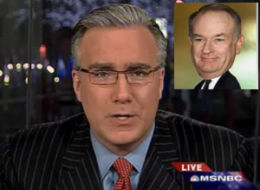
by Dr. Boyce Watkins
www.BoyceWatkins.com
I learned something about the power of money last night. I received an email from one of our readers on Your Black World, who simply said, “Bill O’Reilly is coming after you again.” I took it in and got back to what I was doing. I expected O’Reilly to make another smear attack this week, since a good terrorist always hits the target multiple times.
O’Reilly Bin Laden’s latest target was my poor chancellor, Nancy Cantor. Sending one of his goons (some call them correspondents) to the campus, Dr. Cantor was asked why she is allowing “the good name of Syracuse University to be ruined by a ‘racist’ like Boyce Watkins.” Translation: to some, a “racist” is any black person who speaks up for black people. I accept that.
O’Reilly never really came at me directly, as I and some other black scholars have refused to appear on his show. I don’t fault the ones who choose to appear, but I don’t consider a platform legitimate just because it has a few viewers. Instead, he felt that going after my chancellor and the alumni of Syracuse University would be a more reliable tactic.
I couldn’t agree with O’Reilly more, perhaps the chimp is smarter than I thought.
Our campus is in the middle of a billion dollar fund raising campaign, and I am sure there are those who are sickened by the fact that one of the most visible faculty members on campus is the subject of racial controversy. Financial theory teaches us that risk management and minimization are critical to maximizing popularity and profitability. Controversy is risk, and too much risk hurts your ability to raise money. Oprah knows this all too well, as her political moves have diminished her show’s brand and base during the past year.
As Barack Obama’s experience reminds us, race is not a comfortable conversation, even when presented in the most diplomatic fashion possible. The backlash is far greater when you are direct and honest. What’s interesting is that O’Reilly couldn’t exactly cite why he was so obsessed with me, nor could he point to any strong evidence to support his “race baiter” assertions. The mere fact that he labeled me a “race monger” was enough to get his disciples up in arms. Bill O’Reilly should change his name to Bill Oprah-Reilly, as he has an amazing ability to manipulate his minions and their small, impressionable minds.
According to Bill O’Reilly, I am using the Presidential campaign to engage in “villainous pursuits” to promote a radical agenda. Being the good and noble American that he is, his goal is to ensure that “race hustlers” like myself don’t use their “hate-filled speech” to manipulate the results of the 2008 Presidential Election. Bill O’Reilly has become Martin Luther King Jr in his fight for truth, justice and political purity. God bless him.
My finance lesson this week came from watching Bill O’Reilly squirm. He was boiling mad at me, and even his fellow conservatives couldn’t quite figure out why (note the confusion on the face of the silly conservative radio show host, Laura Ingraham). The reason O’Reilly had become obsessed with me and my words is because of the dirty secret exposed by MSNBC host Keith Olbermann: A group with which I am affiliated, The Your Black World Coalition,
has mobilized an intense email, phone and letter writing campaign to O’Reilly’s corporate sponsors, the FCC and the producers of the show. The ultimate objective is to hold O’Reilly’s corporate sponsors accountable for supporting a man who has consistently engaged in dirty tactics to defame Jeremiah Wright, Barack Obama and other respected individuals in the black community. While O’Reilly is certainly entitled to Freedom of Speech, I won’t have him unfairly assaulting and defaming my respected colleagues, and using my money to do it. While I give O’Reilly credit for being a good financial student, he must remember that I am ultimately the professor.
In reference to my many “lies” to smear O’Reilly, Keith Olbermann asked Bill one simple question: “If that’s what Watkins said, where are the lies?” In naming Bill O’Reilly “The Worst Person in the World” for his attacks on me and the chancellor, Olbermann quoted my reference to O’Reilly’s statement about wanting to have a “lynching party” on Michelle Obama. O’Reilly speaks of lynching the potential First Lady of the United States, and then has the nerve to call others racist and unpatriotic.
Given my training in finance, I learned one thing about living in a capitalist democracy: money makes people move. O’Reilly also understands this. Money makes good people do bad things and gives bad people an excuse to do good things. Money is the reason Fox News exists, and why this form of “capitalism gone wild” has destroyed the integrity of American journalism. Money is the reason that Barack Obama went from being a non-factor to becoming a target of The O’Reilly Factor and the reason that President Bush is sweating over the price of gas.
It is the ability to acquire resources, mobilize resources and take away resources that will change this election. This election will, in turn, change the world. Race matters, there’s no question about that. But money matters much more.
Dr. Boyce Watkins is a Finance Professor at Syracuse University and author of
“Financial Lovemaking 101: Merging Assets with Your Partner in Ways that Feel Good.” This book is one of the definitive guides to
Love, Money and Relationships, cited in Essence Magazine, Black Enterprise and other outlets. For more information, please visit www.BoyceWatkins.com.


